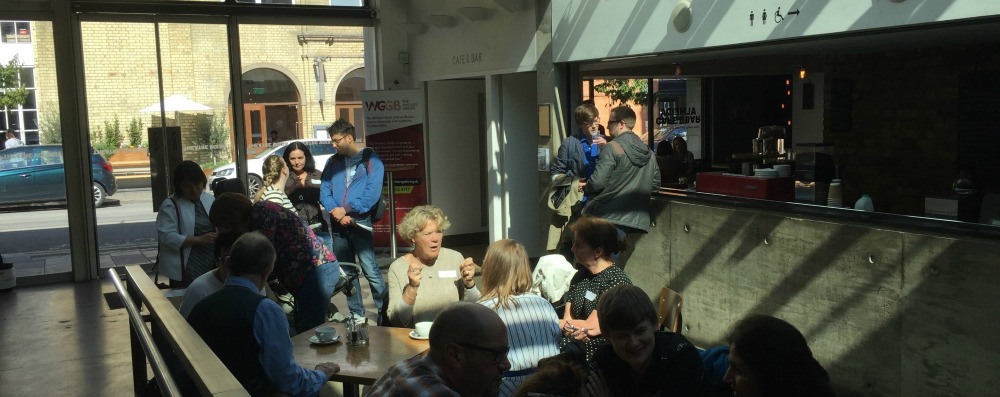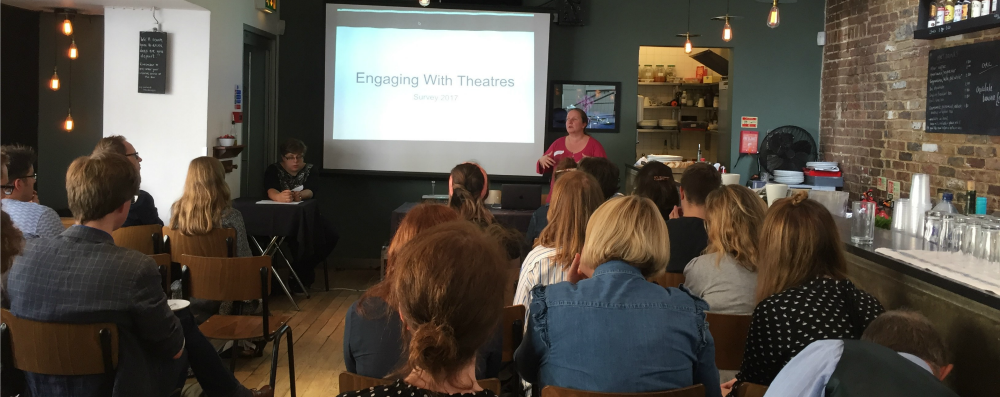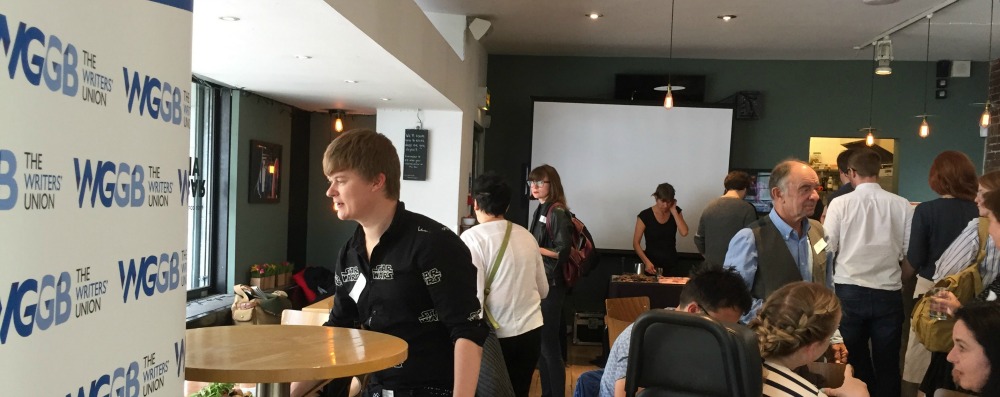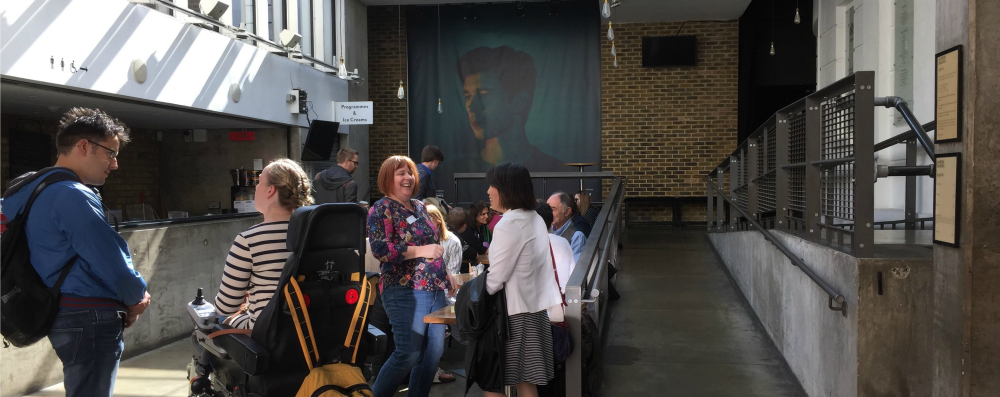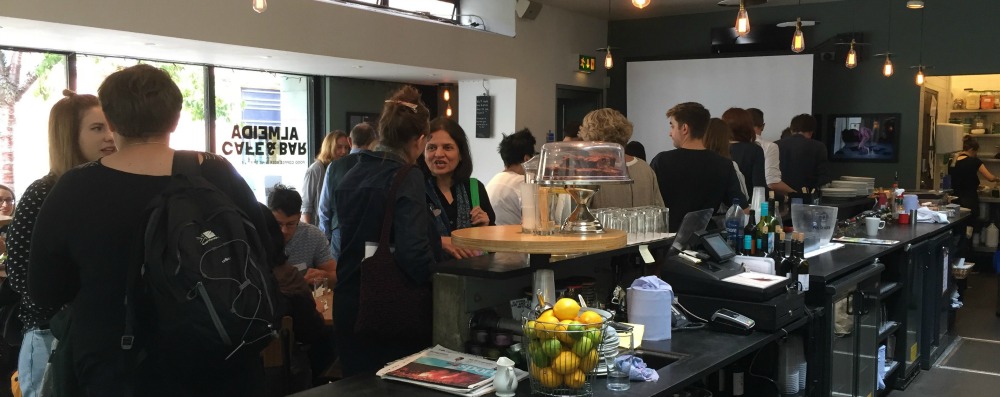That was the question posed at the Writers’ Guild’s annual Literary Managers’ Forum, at the Almeida Theatre in London on Friday 15 September 2017.
The event, co-hosted by WGGB Theatre Co-Chair Jenifer Toksvig and Suzanne Bell, New Writing Associate and Dramaturg at the Royal Exchange Theatre, Manchester, centred around the presentation of interim results of a WGGB survey of literary managers.
Part two of the Literary Managers’ Forum took place on 13 November 2017 at the Royal Exchange in Manchester, the same day as the announcement of the Bruntwood Prize for Playwriting.
The results of the survey and the discussions of both Literary Managers’ Forums will form the basis of WGGB’s revision of its Working Playwright: Engaging With Theatres best practice guidelines. The extensive, three-part exercise, explained Jenifer Toksvig, “will explore all the diverse ways theatre buildings and companies in the UK engage with writers and new writing… It will take the temperature of current practice and discuss what might be best practice”.
Introducing the session at the Almeida Theatre, Jenifer Toksvig said she had been encouraged by the “fantastic response” to the WGGB survey, from “a great diversity of locations and types of companies and venues”.
The survey posed a range of questions including:
• Who deals with new writing in the company?
• Do you have access to unrestricted funding?
• How far ahead do you programme work?
• What is the length of a typical development period?
• Do you fully commission new writing?
• Do you accept unsolicited manuscripts?
• Do you offer constructive critique, and script reports?
• Do you have writers on attachments?
• Do you offer seed commissions?
Whilst the survey is not yet complete, a number of themes emerged from the interim summary:
• Just under 100% said their venue or company engaged with new writing in some way.
• Literary managers and dramaturgs only accounted for a quarter of responses so far, with many artistic directors now dealing with new writing.
• Around three-quarters of respondents said they had a process by which non-commissioned writers can come to the point of commission.
• Over 80% of respondents said they do not commission treatments for a play.
• Over three-quarters said they offered constructive critiques to writers.
• Around three-quarters do not offer script reports, but over 70% do accept manuscripts, either unsolicited or via agents.
• Only around a third of theatres offered writing residences.
Co-hosting the event, Suzanne Bell posed a number of questions the results threw up, particularly, what do writers want? Do they want writing residences, or script reports? Do they know some theatres are programming so far in advance? Has the process of accepting unsolicited manuscripts changed in the past five years? How do writers want to develop their craft?
The latter sparked debate amongst the venues, companies and writers in the room. The consensus was that masterclasses and workshops were of limited value to established writers as they were not tailored enough to individual experiences. Writing is such a bespoke process that craft development may be better served by attachment programmes or mentoring, for example. Freelance writers tend to be time-poor – time away from writing has to be worth it.
However, workshops and masterclasses are of value when targeted at specific levels of experience, as are those that fill training gaps and overcome barriers – for example, to provide more accessible training for disabled writers.
Other discussions centred around:
• How to best nurture the art of storytelling?
• How can the process of theatre-making become more transparent, for both emerging and established writers, and for the theatres who work with them?
• How can theatres avoid falling into the ‘development hell’ trap?
• How can a balance be struck between reaching out to new writers, and meeting the needs of theatres?
• How can we support networking between writers and other theatre professionals?
Jenifer Toksvig said that it was “incredibly encouraging that so many theatres and companies had responded to the survey, and that the general trend is that everyone is so keen to support new writing”.
She encouraged those who haven’t yet responded to the survey to do so, and said they would be receiving an email reminder from WGGB in coming weeks.

